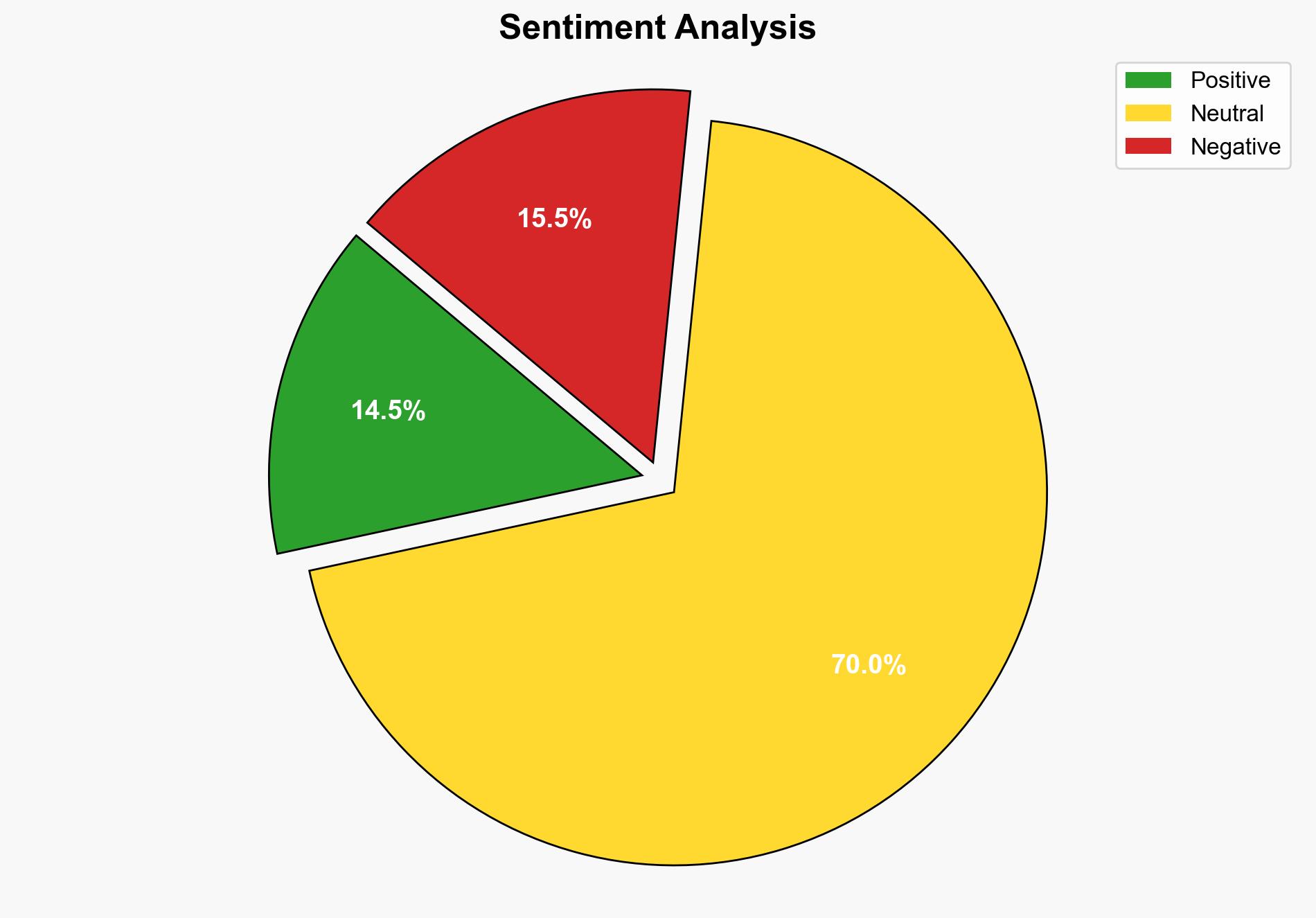Why has the UN lost relevance – BusinessLine
Published on: 2025-09-12
Intelligence Report: Why has the UN lost relevance – BusinessLine
1. BLUF (Bottom Line Up Front)
The United Nations (UN) is perceived as losing relevance due to its structural limitations, particularly the veto power of the permanent Security Council members, and financial dependencies. The most supported hypothesis is that the UN’s structural and financial constraints significantly hinder its effectiveness. Confidence Level: Moderate. Recommended action includes advocating for UN reform focusing on reducing dependency on major financial contributors and revisiting the veto power structure.
2. Competing Hypotheses
1. **Structural and Financial Constraints Hypothesis**: The UN’s relevance is declining due to its structural limitations, such as the veto power of the permanent Security Council members, which prevents decisive action in conflicts like Ukraine and Gaza. Additionally, financial dependency on major contributors like the US and China limits its operational capacity.
2. **Geopolitical Shifts Hypothesis**: The UN’s diminishing relevance is primarily due to changing geopolitical dynamics, including the rise of unilateral actions by powerful nations and the shifting focus of global powers away from multilateralism, as exemplified by the US under Trump’s administration.
Using Analysis of Competing Hypotheses (ACH), the first hypothesis is better supported by the evidence of repeated instances where veto power has stalled UN actions and the financial vulnerabilities highlighted by potential US funding cuts.
3. Key Assumptions and Red Flags
– **Assumptions**: It is assumed that the veto power and financial dependency are the primary causes of UN ineffectiveness. There is an assumption that reform is feasible and would address these issues.
– **Red Flags**: Potential bias in attributing UN failures solely to structural issues without considering external geopolitical factors. Lack of data on successful UN interventions that may counter the narrative of irrelevance.
4. Implications and Strategic Risks
The UN’s perceived irrelevance could lead to increased unilateral actions by powerful nations, undermining global stability. Financial instability could reduce humanitarian aid and peacekeeping operations, exacerbating global crises. The risk of geopolitical fragmentation increases as nations bypass the UN framework.
5. Recommendations and Outlook
- Advocate for UN reform, focusing on reducing the veto power’s impact and diversifying financial support to ensure operational independence.
- Scenario Projections:
- **Best Case**: Successful reform leads to a more agile and effective UN.
- **Worst Case**: Continued irrelevance results in the dissolution of the UN framework, leading to increased global instability.
- **Most Likely**: Partial reforms improve some functions, but major structural issues persist.
6. Key Individuals and Entities
– Olksandr Turchinov
– Ban Ki-moon
– António Guterres
– Donald Trump
– Fiona Hill
– David Shearer
– Alexander Nekrassov
7. Thematic Tags
national security threats, geopolitical dynamics, international governance, organizational reform





